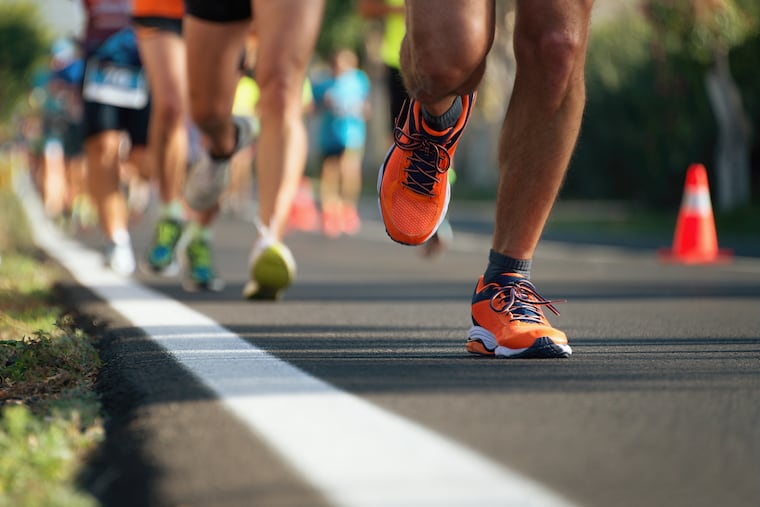Q&A: Why do I have pain and numbness after I run?
If pain and discomfort last for hours or days after running, an existing medical condition could be the cause

Q: I experience pain and numbness after I run. What is going on?
A: Numbness and tingling are common complaints for amateur and expert runners alike. Many runners experience slight pain or pins-and-needles sensations, usually in their hands or feet, during and briefly after their runs. These feelings typically are just minor inconveniences, but, if they persist, could be signs of a larger health issue.
Small running aches and pains are something we often — and rightfully — overlook. But it is important to know the mechanics of your body to identify potential health issues early on.
If pain and discomfort last for hours or days after running, an existing medical condition could be the cause. In some cases, possible health conditions causing numbness in the extremities include multiple sclerosis, Lyme disease, bulging discs, pinched nerves, or overhydration. While instances of pain or discomfort are not, by themselves, signs of these conditions, it is important to talk to your doctor about your health and explore potential causes.
In most cases, you can reduce numbness and pain while running by making small adjustments. Changes to your running form and footwear are common, simple solutions to these problems.
Stiff form. Lack of blood flow can cause slight pain and numbness while running. When you run, your heart distributes blood to the parts of the body that need it most, such as your calves and thighs. Stiff, tense shoulders and arms while running exert unneeded energy and increase blood flow to the upper body, reducing blood flow to the legs. Insufficient blood flow causes numbness and pins-and-needles sensations in the feet and lower legs. Try to relax your shoulders and keep your arms close to your sides to ensure proper blood flow.
Clenched fists. Many runners have the instinct to clench their fists as they run. Clenched fists tire out your arms and add tension to your shoulders, and the tight grip cuts off blood flow to the nerves in your hands, making your fingers go numb. Experts recommend that runners relax their hands and run with slightly open fists. Some runners even pretend to hold eggs in their hands to prevent their fists from closing.
Ill-fitting shoes. Some runners try to tie their shoes as tightly as they can before heading outside but doing so limits circulation to the foot, leading to numbness and tingling. Sometimes, the problem is as simple as wearing the wrong shoe size. Running shoes that are too tight also can lead to blisters and toe injuries. Your running shoes should be snug at the heel while allowing for room to wiggle your toes.
When should I worry? Tingling and pins-and-needles sensations usually will stop when you rest after running. However, if you experience pain and numbness that persist for hours or days after running, talk to your doctor.
Michael Yang, M.D., is a sports-medicine specialist at Mercy Philadelphia Hospital.